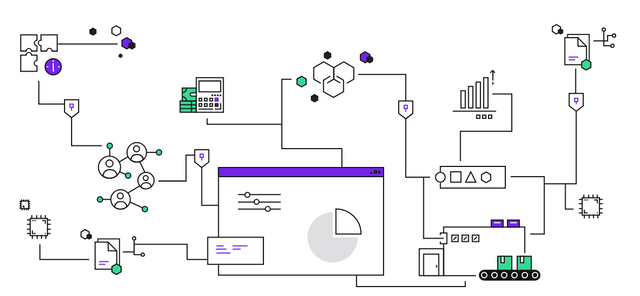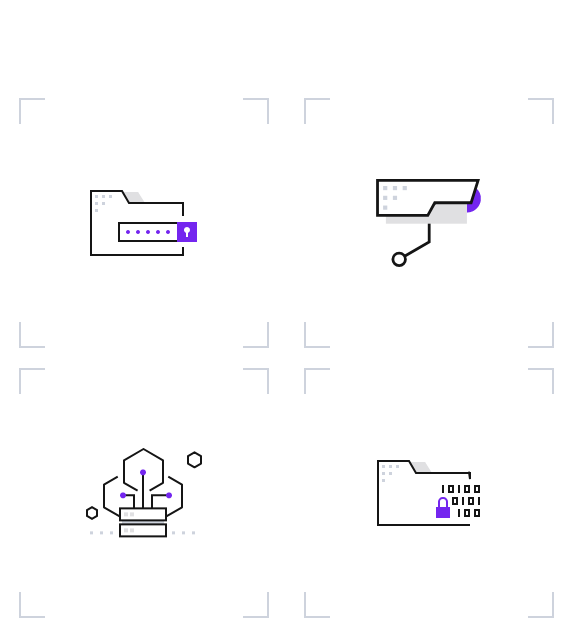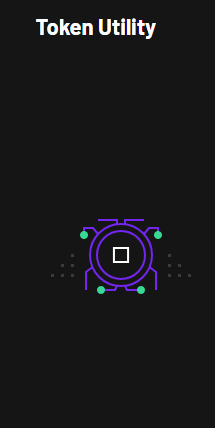Since time memorial, businesses, as well as individuals, have battled with the problems of efficiency and cost in their daily activities. On the part of individuals, centralization was a huge blow to them since they lacked total control over their assets, while on the part of businesses, the high cost of running their various operations was their major blow.
The introduction of blockchain has bridged that gap to provide both businesses and individuals with the right efficiency and cost-cutting in their day to day activities. Zygot ERP is the next generation ERP software.

What is ERP?
The acronym ERP stands for Enterprise Resource Planning. Enterprise Resource Planning is a management process software for businesses that allows them to use a system of integrated applications to manage their business and automate many back-office functions related to technology, services, and human resources. Generally, Enterprise Resource Planning software integrates all phases of business operation in a single database. These phases of business operation include manufacturing, marketing, product planning, among others. Enterprise Resource Planning system help organizations to smoothen out their business processes and to efficiently manage operations.
What is Zygot Enterprise Resource Planning (ZERP)?
ZERP is a platform decentralized for Open Source Intelligent ERP solution that utilizes blockchain technology. It is built on EOS blockchain and seeks to offers micro companies, Small and Medium Scale Enterprises, corporate companies, and institutional organizations with accessible decentralized Enterprise Resource Planning (ERP) architecture. ZERP decentralized platform is designed and facilitated by an outstanding team called Zygot. The vision and mission of the team as stated in their whitepaper are;
Zygot is bringing the benefits of tailored software solutions to all companies, regardless of
their size, with regards to their needs and Conceptualize, design, facilitate and sustain an ecosystem and mechanisms for decentralized stakeholder coopetition - with international scope in diverse domains of software development, application, and advancement respectively.
ZERP, on the other hand, has a goal to make blockchain-powered, global, inclusive for all company sizes, domains, industries, ecosystems, affordable, community-improved, collaborative and sustainable ERP modular solutions.

Problems With Other ERP Software
Over the years, companies trusted ERP software to eradicate inefficiency and also cut costs on their day to day activities. But whenever there is a cyber-attack against these companies, their data are always on the on lose because their ERP system that keeps critical data and also serves as the data center that connects to other systems, customers, suppliers, mobile employees, and purchasing machines lacks incorrect ERP security role and profile designs. Hence, companies data are been misused and accessed by frauds.
A company’s data is the very key thing to its survival, when it is been compromised it can lead to the shut down of the company. Some other problems with other ERP software includes;
- High Initial and Maintenance cost
- Adaptability
- Modularity
- Difficult Integrations - lack of standards, and protocols
- Dependence on single provider
How ZERP Solves These Problems
ZERP as the next generation ERP solves the above problems through the following ways;
Integrating Blockchain into ERP System
Blockchain technology over the years have provided transparency, reliability, and security to its users by enabling registration of the operational transactions in blocks, such that these data are shared across a peer-to-peer network.
Integrating blockchain technology into ERP provides immutability that will help existing data of companies not to be altered. With blockchain technology, there is always safe chronological
evidence for every transaction.
The integration of blockchain into ERP by ZERP will improve privacy, efficiency, transparency and greater confidence for ERP system. Companies will then enjoy greater control in the utilization of the existing company data regarding generation and transfer of new information into a distributed ledger.
Cloud Blockchain ERP
According to Zygote’s whitepaper, Cloud blockchain ERP primarily perceives decentralized platform of databases with integrity to which the users can access in real time from any location. Scalability and security are qualitatively new transformative content that differentiates decentralized blockchain ERP from on-premise ERP. ERP structured in this manner employs greater developing efficiency and agility in the process of business decision-making and business process re-engineering, responsive to the dynamic changes in the global competitive environment.
ZERP platform will seek to develop a broad ecosystem that will include the integration of
many users to their decentralized platform where these users can freely use their ERP applications, develop the functionalities and easily articulate their needs connected with the ERP used.
ZERP will be an open interoperable software powered by EOS blockchain system where the
companies will be able to have access to more sophisticated ERP software. The peer-to-peer
network configuration of the blockchain will allow the peers in the chain to permanently
qualitatively improve the software, and develop and strengthen its performance and
functionality.

How will ZERP ecosystem function?
According to Zygot in this faq, An ERP engine will be initially designed and programmed by the Vertex team, with high quality documented communication protocol to complement it. It will be modular to a high extent, so that the customers are given the possibility to buy modules and parts they only need. Also, there will be two interfaces so that the software offers full functionality.
For this engine, various teams can create own intuitive interfaces which would represent an opportunity for the teams to compete and for the clients to choose. Also, there would be participants for the implementation role, that would perform implementations under various conditions and effectiveness.
There will be a dashboard to set the customer requests and the price they would pay for what they need. Other companies can join the requests and share the implementation costs. That kind of aggregation of similar interests will make the module modifications and improvements interesting and relevant for the developer teams to uptake, dedicate and complete, keeping high quality and user satisfaction as reference.
To achieve serious commitment by the teams, they are required to buy and ‘stake’ certain number of tokens. Depending on that number, they can acquire projects in total amounts that are 10 times bigger than the number of ‘staked’ tokens. The rating of the teams will be significant too. If the team receives negative references, it will be excluded from the ecosystem and the coins will not be returned. These rules are intended to enable commitment of the developing teams and align incentives.
Smart contracts are to be used for each acquired task in order to protect both the providers and the users.
The dashboard will be an orientation spot where each team’s progress and history of engagements will be visible, as well as team’s ratings for job well done.
The first team that grabs the task (being satisfied by the offered amount) will be the team that needs to complete it. At that moment, a deadline is set for completion and the necessary smart contract details are clarified. In cases of deadline extension, there is the possibility to lower the amount to be paid for the service.
A term server will be developed in order to comply with the multiple language requirements. These will be reflected in the offer of multilingual software solutions.
Zygot Token
ZERP is powered by a utility token called Zygot token. These tokens will be used as the core mode of mechanisms throughout the ZERP ecosystem. Zygot will only supply a total of 100,000,000 (100 million) ZYG tokens. These tokens will be distributed in the following ways;
- 67% in the private token sale
- 9% sold to seed investors
- 6% to the team (locked up for 12 months)
- 12% cold storage liquidity reserve
- 6% legal / token sale expenses

Conclusion
Zygot Enterprise Resource Planning (ZERP) is really aimed at revolutionizing the ERP systems using the Blockchain and EOS. With these two backings, transparency, immutability, irreversibility, data integrity, security, and accountability are always assured for your enterprise. I know with time Zygot Enterprise Resource Planning (ZERP) will experience greater developments.
All images used are screenshoots from https://zygot.io
References
ZygotERP website
ZygotERP Whitepaper
ZygotERP Twitter
ZygotERP Telegram
Disclaimer: This is not financial advice, nor a guarantee or promise in regards to any result that may be obtained from using the above content. The information provided here is for informational and entertainment purposes only. It should not be considered as financial and/or investment advice. No person should make any kind of financial decision without first consulting their own financial adviser and/or conducting their own research and due diligence.
You just received a 100% upvote from @rewards-pool. Thank You for being apart of the @rewards-pool community
Downvoting a post can decrease pending rewards and make it less visible. Common reasons:
Submit
Hmmmm ur coded assignment
Downvoting a post can decrease pending rewards and make it less visible. Common reasons:
Submit
Hi @ferrate!
Your post was upvoted by @steem-ua, new Steem dApp, using UserAuthority for algorithmic post curation!
Your UA account score is currently 2.440 which ranks you at #17715 across all Steem accounts.
Your rank has improved 49 places in the last three days (old rank 17764).
In our last Algorithmic Curation Round, consisting of 151 contributions, your post is ranked at #112.
Evaluation of your UA score:
Feel free to join our @steem-ua Discord server
Downvoting a post can decrease pending rewards and make it less visible. Common reasons:
Submit